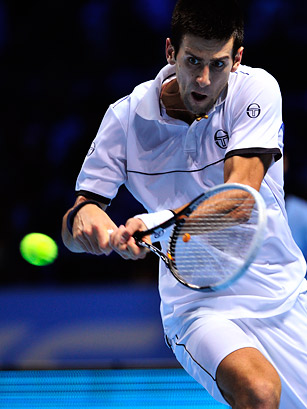
Novak Djokovic ended his historic 2011 season with a 70-6 record, the world's number one-ranking, $12.6 million in prize money, 10 tournament titles, three Grand Slam titles (Australian Open, U.S. Open, and Wimbledon), and a perfect 6-0 record against tennis rival Rafael Nadal in finals. And if that wasn't enough, Djokovic finished 4-1 against Roger Federer. In fact, he had his finest moment against Federer, in the U.S. Open semifinal: facing match points while trailing 5-3 in the decisive fifth set, Djokovic staved off elimination with a massive cross-court return forehand winner at 15-40 in the ninth game. One key to Djokovic's unprecedented success was his diet. After being diagnosed with gluten-sensitivity last off-season, Djokovic stopped eating the protein found in bread and pastas, which helped improve his stamina. In his native Serbia, where Djokovic is revered, the tennis star started a fad. Swearing off gluten is all the rage. "People think that will solve all their problems as well," says Vladimir Petrovic, Serbia's ambassador to the U.S. For years, the Nadal-Federer rivalry defined men's tennis. The ascendance of Djokovic, who is more engaging and carefree than those stars, has added a much-needed new spark to the game.